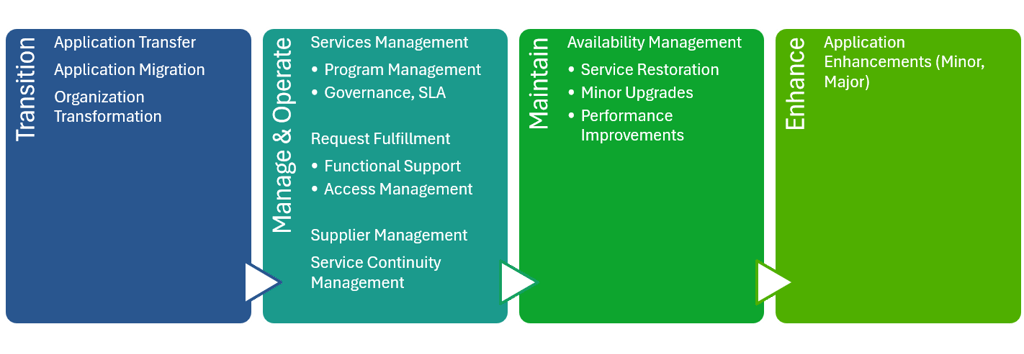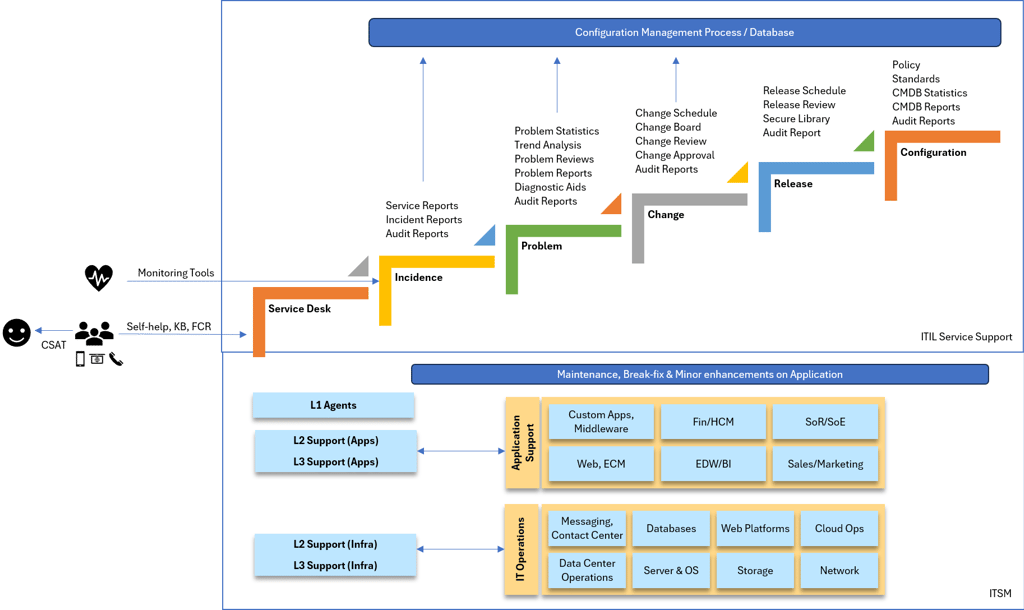Application Managed Services - improve application performance and achieve better business results
70-75% of CIO Spend goes towards infrastructure and transaction (keeping ligts-on) budgets. Utilizing AMS Outsourcing, dollars can be saved and used to fund strategic initiatives, innovation projects
CXO
2/7/2014


Typical organization spends 70%-75% of its technology budget on 2 areas: Infrastructure technology (foundational) and transaction technology (business operations, running processes).
See my earlier Blog
Service Providers offer Applications Managed Services(AMS) to maintain client applications and technology infrastructure, including Enterprise Resource Planning (ERP) software, legacy systems, portals and middleware. They may even provide hosting services. Clients benefit from providers knowledge of best practice processes, gaining cost reductions and optimized operations. Clients have the choice and flexibility of outsourcing support for select infrastructure, applications, or an entire infrastructure / application portfolio.
Using a services-based, fixed price model, AMS helps clients shift application investments from maintenance to innovation, providing predictable, cost-effective services that can adjust with changing business needs. Steps involved in AMS Outsourcing
Assess and align in-scope applications
Transition applications responsibility
Transform the support organization, select services and applications to a managed environment
Provide ongoing management


Benefits to client:
Reduced spend
Free up staff for strategic/innovation projects
Increased visibility into the applications portfolio and its alignment to business priorities
Scalability to manage capacity surges and drops, Skillsets availability
Improves service reliability, with rigorous service levels, business process KPIs, and automation
Role of Service Desk in IT-as-a-service:
AMS is optimized using global delivery model, customized for unique client needs with a blend of onsite, onshore, nearshore delivery. It incorporates the industry-proven Information Technology Information Library (ITIL) framework. ITIL provides a framework that gives IT teams the flexibility and stability they need to support the business successfully. IT service management (ITSM), is how supplier manages the end-to-end delivery of contracted services to its client.


